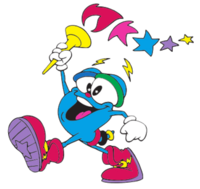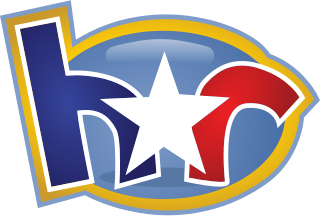
Homestar Runner is an American comedy animated web series and website created by Mike and Matt Chapman, known collectively as The Brothers Chaps. The series centers on the adventures of a large and diverse cast of characters, headed by the titular character, Homestar Runner. It uses a blend of surreal humor, self-parody, satire, and references to popular culture, in particular video games, classic television, and popular music.
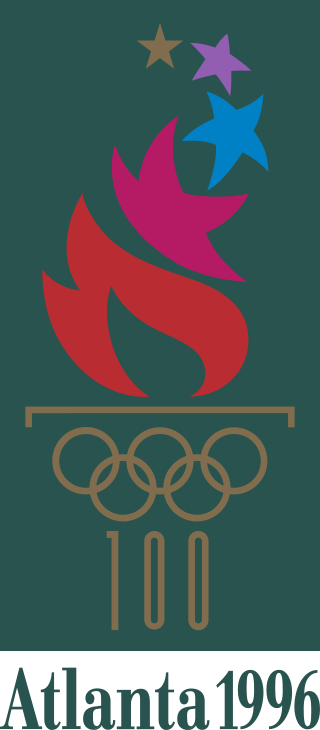
The 1996 Summer Olympics were an international multi-sport event held from July 19 to August 4, 1996, in Atlanta, Georgia, United States. These were the fourth Summer Olympics to be hosted by the United States, and marked the 100th anniversary of the 1896 Summer Olympics in Athens, the inaugural edition of the modern Olympic Games. These were also the first Summer Olympics to be held in a different year than the Winter Olympics since the Winter Olympics commenced in 1924, as part of a new IOC practice implemented in 1994 to hold the Summer and Winter Games in alternating, even-numbered years. The 1996 Games were the first of the two consecutive Summer Olympics to be held in a predominantly English-speaking country, preceding the 2000 Summer Olympics in Sydney, Australia. These were also the last Summer Olympics to be held in North America until 2028, when Los Angeles will host the games for the third time.
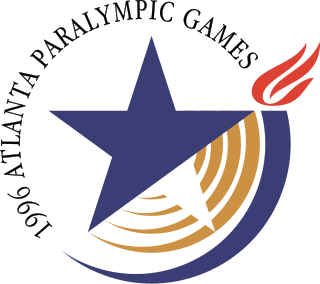
The 1996 Paralympic Games in Atlanta, Georgia, United States, were held from August 16 to 25. It was the first Paralympics to get mass media sponsorship, and had a budget of USD $81 million.
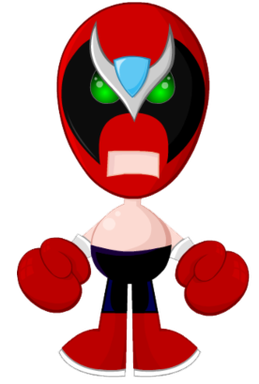
Strong Bad is a fictional character from Homestar Runner, a series of animated Flash videos, who is inspired by "The Strong Bads" from the video game Tag Team Wrestling. He is voiced by Matt Chapman, the principal voice actor and co-creator of the series. Strong Bad enjoys pranking the other characters of the series, along with his ever-diligent lackey pet The Cheat and his older brother Strong Mad. Strong Bad first became popular due to his own segment on the Homestar Runner website, called “Strong Bad Emails”. The Strong Bad Email series grew to be so popular that six DVDs featuring the emails have been released, as well as a podcast where emails could be downloaded to digital media players, since its first episode in 2001.

The International Olympic Committee (IOC) uses icons, flags, and symbols to elevate the Olympic Games. These symbols include those commonly used during Olympic competition—such as the flame, fanfare and theme—as well as those used throughout the years, such as the Olympic flag.

Misha, also known as Mishka or The Olympic Mishka, is the name of the Russian Bear mascot of the 1980 Moscow Olympic Games. He was designed by children's books illustrator Victor Chizhikov.

Centennial Olympic Park is a 22-acre (89,000 m2) public park located in downtown Atlanta, Georgia, owned and operated by the Georgia World Congress Center Authority. It was built by the Atlanta Committee for the Olympic Games (ACOG) as part of the infrastructure improvements for the 1996 Summer Olympics. It plays host to millions of visitors a year and several events, including a summer popular music concert series, the annual SweetWater 420 Fest and an annual Independence Day concert and fireworks display.
The Olympic games have been featured in numerous sport video games officially licensed by the International Olympic Committee or not. These games have more than one event and/or several sports, and have an Olympic theme.

Mark Alan Lemke is an American former Major League Baseball player and current broadcaster. Nicknamed "the Lemmer", he was a popular second baseman for the Atlanta Braves from 1988 to 1997. He won the 1995 World Series with the Braves over the Cleveland Indians.

The Fuwa were the mascots of the 2008 Summer Olympics in Beijing. The designs were created by Han Meilin, a famous Chinese artist. The designs were publicly announced by the National Society of Chinese Classic Literature Studies on 11 November 2005 at an event marking the 1000th day before the opening of the games.

Downtown Atlanta is the central business district of Atlanta, Georgia, United States. The largest of the city's three commercial districts, it is the location of many corporate and regional headquarters; city, county, state, and federal government facilities; Georgia State University; sporting venues; and most of Atlanta's tourist attractions. It measures approximately four square miles, and had 26,850 residents as of 2017. Similar to other central business districts in the United States, it has recently undergone a transformation that includes the construction of new condos and lofts, renovation of historic buildings, and arrival of new residents and businesses.

The Paralympic symbols are the icons, flags, and symbols used by the International Paralympic Committee to promote the Paralympic Games.

Saint Kitts and Nevis competed in the Olympic Games for the first time at the 1996 Summer Olympics in Atlanta, United States. The country sent ten athletes to compete, all in the sport of athletics. None of the athletes received a medal.

Dunwoody High School is a public high school in Dunwoody, an incorporated city in DeKalb County, Georgia, United States.
The 1997 Atlanta Braves season marked the franchise's 32nd season in Atlanta and 127th overall. The Braves entered the season as defending National League champions, having lost the 1996 World Series to the Yankees in 6 games. They won their seventh consecutive division title, taking the National League East by 9 games over the second place Florida Marlins. However, the Marlins would later defeat the Braves in the NLCS. 1997 was the first year that the Braves played their home games in Turner Field, a reconstruction of the former Centennial Olympic Stadium, which originally served as the main venue for the 1996 Summer Olympics.

Izzy's Quest for the Olympic Rings is a mid-1990s video game developed by Alexandria and published by U.S. Gold for the Sega Genesis in 1995, and for the Super Nintendo Entertainment System in 1996.

Wenlock is the official mascot for the 2012 Summer Olympics, and Mandeville is the official mascot for the 2012 Summer Paralympics, both held in London, England, United Kingdom. Named after Much Wenlock and Stoke Mandeville, they were created by Iris, a London-based creative agency. The mascots were unveiled on 19 May 2010, marking the second time that both Olympic and Paralympic mascots were unveiled at the same time.
The opening ceremony of the 1996 Summer Olympics took place in the evening on Friday, July 19 at the Centennial Olympic Stadium, Atlanta, United States. As mandated by the Olympic Charter, the proceedings combined the formal and ceremonial opening of this international sporting event, including welcoming speeches, hoisting of the flags and the parade of athletes, with an artistic spectacle to showcase the host nation's culture and history. The Games were officially opened by President of the United States of America Bill Clinton.

The 1996 Summer Olympics torch relay was run from April 27, 1996, until July 19, 1996, prior to the 1996 Summer Olympics in Atlanta. The route covered 26,875 kilometers (16,699 mi) across the United States and featured a wide variety in the methods of transport used, including bicycles, boats, and trains. The National Pony Express Association participated in the journey, with riders carrying the torch for over 56 continuous hours. The torch was taken on board a replica of a 19th-century packet boat and pulled for 3.2 kilometers (2.0 mi) along the Erie Canal by mule. The torch was also carried into space for the first time, with astronauts taking an unlit torch with them aboard Space Shuttle Columbia as part of STS-78. The relay involved over 12,000 torchbearers, including Muhammad Ali, who was chosen to ignite the Olympic cauldron.
Gocha Tsitsiashvili is a retired amateur Israeli Greco-Roman wrestler, who competed in the men's light heavyweight category. Considering one of the world's top Greco-Roman wrestlers in his decade, Tsitsiashvili had claimed numerous medals in the international scene, including his prestigious gold from the 2003 World Wrestling Championships, and later represented as part of the Israeli team in three editions of the Olympic Games. Tsitsiashvili also became a member of the Hapoel Be'er Sheva Club under his personal coach Yakov Masin.
